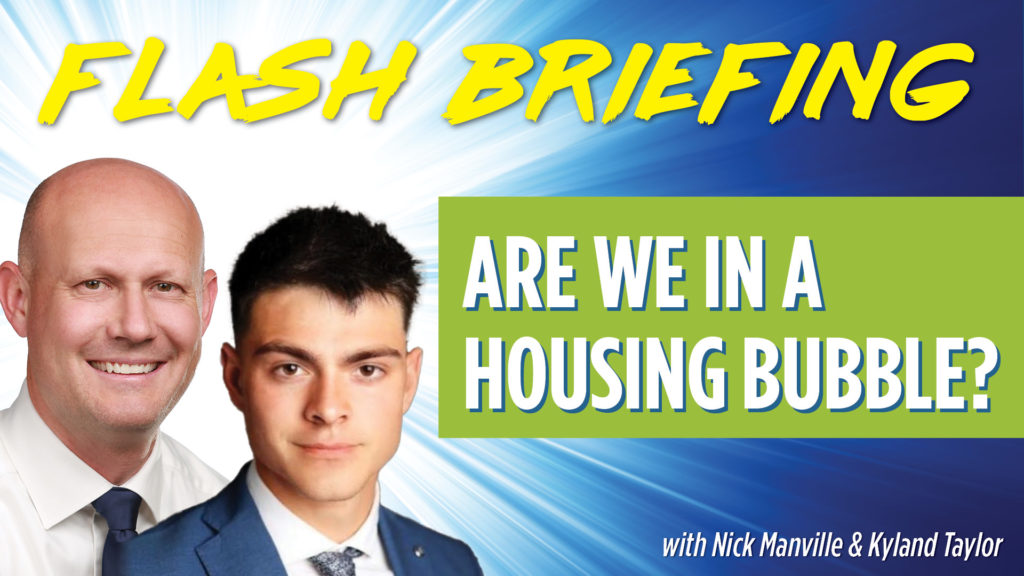As home values rise at stunning speeds, many people are growing nervous. There seem to be similarities between today’s market and the pre-2008 housing market, which led to the market crash and the Great Recession. Are they right to worry?
Are We Looking at Another 2008?
There are definitely some similarities. The most notable similarity is simply the rapidly increasing home prices. Those who were in the real estate industry 15 years ago remember how common it was for homes to receive multiple offers over asking price, and we’re seeing that in today’s market again.
Do these similarities mean we’re going to see another housing crash? That depends on whether or not our current market is a bubble.
What Exactly Is a Housing Bubble?
Redfin’s Lead Economist,Taylor Marr, explained that a bubble occurs when prices are artificially high. Some natural reasons for rising prices are things like rising income, mortgage rates, or population growth. In a bubble, prices rise because investors get excited and start investing rapidly. The buzz and energy causes prices to go up, but it’s artificial.
Are Prices Artificially High?
Billionaire investor, Jeff Greene, thinks yes. He believes the high prices will lead to a crash. In 2008, he predicted the housing crash and made a fortune by shorting subprime mortgages. He believes today’s market will lead to inflation, rising mortgage rates, and a sudden crash.
But analysts at Morgan Stanley disagree. They believe we’re in a healthy position, not headed toward a market crash. They point out the debt-to-income ratio of current mortgage owners is much lower than that of 15 years ago. The current mortgage debt nationally is roughly $1 trillion. In 2008, it was $26 trillion.
When people borrow large amounts, they’re more likely to default on loans. A high debt-to-income ratio indicates that mortgage companies are lending more money than is healthy for the economy. Because we can see that the national mortgage debt is a mere fraction of the size it was in 2008, we can feel more confident that homeowners are borrowing a reasonable, not inflated amount.
What Is Driving Home Values Up?
The number one cause of rising prices is the never-before-seen levels of low inventory. There simply aren’t enough homes compared to the number of people who want to be homeowners. We’re in the 18th straight month of annual declines in homes listed for sale. March 2021 had a 32 percent decrease from March 2020.
Home vacancy rates are currently lower than they’ve been since 1957. Low vacancy rates are driven by high demand. When home values rise because of rising demand and shrinking supply, it suggests that prices are not artificially high, as they would be in a bubble.
Will Prices Drop Soon?
Nothing is for certain, but demand is likely to stay high for the foreseeable future. So even if supply increases, it’ll be awhile before we see prices drop. Millennials are the biggest generation in 100 years, and millions are looking to enter the housing market while the oldest members of Gen Z are headed into their 20s, bringing them closer to home buying age and adding to the demand for houses.
This is a stark difference from the 2008 era because rapid homebuilding, combined with numerous foreclosures created greater supply than demand. We’re unlikely to return to those conditions any time soon.
So while markets can be difficult to predict, most experts feel positive that we’re not likely to see a crash anytime soon. If you’re a homeowner, you can rest easy. If you’re trying to break into the market, well, don’t hold your breath for prices to drop.
To learn how to compete in multiple offer scenarios and close more deals, schedule a FREE business analysis with our experts today!


